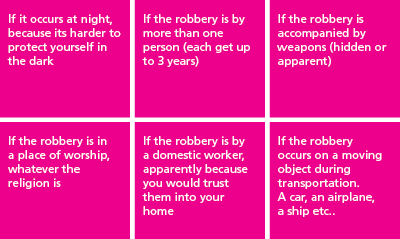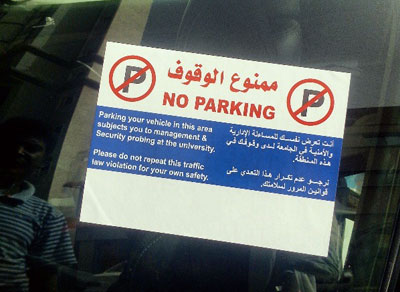Hi everyone, my name is Fajer and I’m a legal counsel at a local law firm. One of Mark’s forum users had a law related question and he thought it might be a good idea to get me involved on the blog with law related posts starting with the questions his forum user had. I’ll post the users problem first followed by my response below it.

THE PROBLEM
My brother was accused of shoplifting a packet of AAA batteries at a supermarket. He was leaving the supermarket when the detector at the exit started buzzing and they found the battery pack on him. It was by accident and he tried to explain that to them but he was arrested, booked and slapped with a robbery case as well as a travel ban.
My questions are the following:
1) What is the law here towards shoplifting?
2) Is it justifiable to send a guy to jail and keep him there for more than 24 hours without a case?
3) I heard from a friend of mine supermarkets usually don’t get first time offenders arrested and just end up paying a penalty instead is that true?
4) Is it possible to friendly settle this case out of court?
THE RESPONSE
The answer to your situation is not very straight forward but I will try to go through your questions and explain everything to you.
1) What is the law here towards shoplifting?
There is no specific law in Kuwait towards shoplifting but the act of shoplifting falls under the crime of robbery. The official English translation of the Kuwaiti criminal law describes robbery in Article 217 as “A person is guilty of robbery, if he embezzles movable property, owned by a third party, with the intent to acquire it” … ahhh lawyers and their confusing legal sentences… so wait lets break things down.
In every law, for any country, all crimes consist of two parts:

Point here is that you have to have intent to steal to be charged with robbery. If your brother forgot to pay for the batteries by accident, the verdict should be innocent but to get to that verdict you need to prove “Mens Rea”.
2) Is it justifiable to send a guy to jail and keep him there for more than 24 hours without a case?
According to the new criminal procedures law (and without getting into detail), the police officers have the right to hold someone up to 48hrs (it used to be longer) if they are accused of a crime. This would not be in prison but in a police station with the aim of starting an initial investigation before going to court. Their initial investigation might be to ask a few questions, find evidence and to figure out what laws apply.
3) I heard from a friend of mine supermarkets usually don’t get first time offenders arrested and just end up paying a penalty instead is that true?
Article 143 states that it is a crime to not report a robbery so the Supermarket was abiding by the law when they reported the crime to the police. Now some supermarkets might be more forgiving and let it slide, but, “letting it slide” is a crime on their part and so I could understand why some supermarkets wouldn’t want to let it slide.
An interesting fact, if you’re inside a supermarket and you pick up a chocolate bar, eat it and then leave the supermarket without paying for it, then you have not “taken the property from the possession of a third party” (as the law article goes on to define embazzlment) therefore you have not moved the object from the ownership of the supermarket and so is not defined as robbery. This definition caused a lot of problems in Kuwait because people were using services and not paying for them or eating at restaurants and not paying for the meal so another law was passed where it said that this action was not a crime… but you had to pay a fine of KD75 plus the cost of the service or food you ate. So most likely that’s the penalty you heard about.
4) Is it possible to friendly settle this case out of court?
No it is not possible to settle robbery cases in Kuwait. Some crimes in Kuwait like robbery are considered to be against the community and not just the supermarket and so one individual does not have the right to settle it. The criminal court needs to look into the case.
So I know you didn’t ask me this, but…
5) What is the punishment for robbery in Kuwait?
Article 219 of the criminal states the punishment as being up to 2 years of jail time or/and a fee of up to 2000 Rupees (yes the law is that old that the fees are still in Indian Rupees).
So this means that a judge can ask the accused to go to jail for 2 weeks or 2 months or 6 months and 3 days just as long as it is not more than 2 years. Or he can make you pay 100 rupees or 1500 rupees. He could also decide no punishment or both a jail time and fine. The judges have a lot of power here.
But the maximum isn’t always 2 years because Article 221 was added and changed it to 3 years for certain situations:

Hope the above helps you out. One more thing I forgot to mention, the cost of the item doesn’t matter so a packet of AAA batteries or a gold necklace are treated the same.
Fajer Ahmed – Legal Counsel
Have a Kuwait law related question? Email me at [email protected]
The legal opinions expressed in this post are those of the author Fajer. Opinions expressed by Mark or any other writer on mark248am1.wpenginepowered.com are those of the individual’s and in no way reflect Fajer’s opinion.








